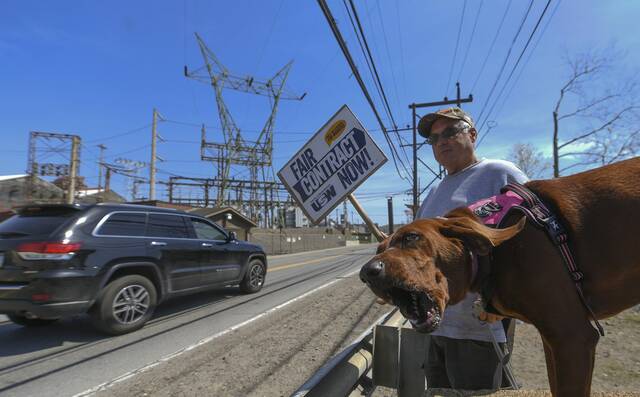This week, clean energy leaders from around the world will gather here in Pittsburgh for a critical dialogue on how to address climate change but also improve jobs. Their choice of Pittsburgh for this unique gathering is not a coincidence: Opportunities for workers in the Steel City and all of the Ohio River Valley are expanding exponentially.
All across the nation and right here in Southwestern Pennsylvania, working people have been clear: They won’t return quietly to jobs with unlivable wages where workers are not respected or listened to on the job. Whether it’s at Starbucks, Coffee Tree, Google or the University of Pittsburgh — one of the anchors of Pittsburgh’s “eds and meds” economy — workers are standing up to demand fair pay and treatment, and to participate in decisions about their working conditions.
Unions are more popular than they’ve been in half a century–with a 71% approval rating. Working people recognize that unions are the only way to bring balance to our economy and our politics, by putting a check on greedy corporations and bringing an end to skewed growth that benefits only the richest 1%.
It’s no surprise that workers are joining unions at a rate not seen in decades. Strong unions must be the backbone of efforts to reimagine Appalachia — offering new hope to Applachian workers who have been left behind for decades. 20th century industrial barons — not unlike today’s multinational fossil fuel corporations — used our labor to extract not just our natural resources, but also our wealth. After a few decades of shared prosperity in the New Deal, they left our steel-producing river towns and coalfield communities in the dust.
Keystone Research Center’s latest report, “The State of Working Pennsylvania,” shows how the confluence of union organizing in the giant companies of today’s American economy and union organizing in inherently local industries could lead to a union wave we haven’t seen since the Depression era. An increase in union representation could lift wages for all workers, help close racial and gender wage and opportunity gaps, and make it easier for displaced fossil-fuel workers to transition to new jobs in clean energy industries — jobs that pay as well or better as their old job.
The growth of unions in the region offers greater promise than ever as we look at the transformative opportunities presented by two major new bills: the Inflation Reduction Act, passed by congressional Democrats and supported by the Biden administration, and last November’s Bipartisan Infrastructure Law.
These two historic pieces of legislation will mean massive investment in our failing infrastructure and the creation of manufacturing jobs that pay good wages.
Local hire provisions and strong wage standards are essential to help ensure these jobs go to local workers, pay well and that many are unionized. Such provisions will also give priority in hiring to local low-income and dislocated workers who have been left behind — many of whom live in struggling towns and neighborhoods experiencing the worst of the climate crisis.
One great example of how good policy can create pathways for high-paying union careers for new workers is the “Intro to the Trades” training program operated by the SW Pennsylvania Builders Guild (a labor-management group), which has been enabling qualified people of color to enter unionized construction since 2018.
As the “State of Working Pennsylvania 2022” shows, the construction and manufacturing workers who will benefit most from these federal investments have been stuck with flat wages for 40 years. Thoughtful implementation of federal climate and infrastructure funds are essential to maximize their impacts and improve the lives of Appalachian workers.
There is yet more good news for workers this September — in addition to stronger unions and historic opportunities to develop new careers, our tight labor market gives even individual workers more bargaining power. Demand for workers is high and supply of workers is still scarce — giving workers a better chance of negotiating a fair deal on the job than they’ve had in decades.
The organizing movement here — whether at Starbucks, the Coffee Tree, or UPMC — has support from public officials from Mayor Ed Gainey to President Joe Biden. Pro-union officials understand the need to encourage worker organizing and strengthen policies that raise wages, like increasing the minimum wage and maintaining prevailing wage laws in construction. With the economy finally tilting in workers’ favor, if local, state and federal policymakers have workers’ backs we can usher in a new era of shared prosperity in our region, in our state, and in our country.
Stephen Herzenberg is executive director of the Keystone Research Center.








